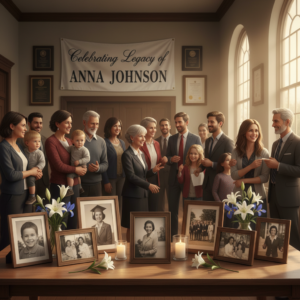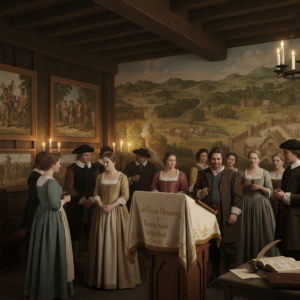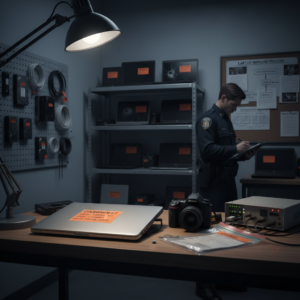Highlights:
– The conflict between Russia and Ukraine, with its ongoing military and civilian casualties, highlights the urgent need for a diplomatic resolution to prevent further devastation and loss of life.
– JD Vance's controversial stance on the conflict, advocating for a reevaluation of U.S. support for Ukraine, ignites important discussions about the strategic implications of American involvement in the region and prompts reflection on the broader geopolitical landscape.
– Despite the deepening military cooperation between NATO and Ukraine, the persistence of the conflict and Russia's continued offensive actions emphasize the intricate challenges that need to be addressed to achieve a sustainable peace in the region.
Explore how you can stay informed about evolving global conflicts like the one in Ukraine below.

Summary
The ongoing war between Russia and Ukraine, which escalated significantly with Russia’s full-scale invasion in February 2022, remains unresolved with no immediate prospects for peace. The conflict, rooted in the 2014 annexation of Crimea and subsequent fighting in eastern Ukraine, has resulted in extensive military and civilian casualties, widespread destruction, and a complex geopolitical crisis drawing global attention. Despite substantial military aid from the United States and its allies bolstering Ukraine’s defense capabilities, diplomatic efforts to end the hostilities have thus far failed to produce a lasting resolution.
JD Vance, U.S. Senator from Ohio and former Vice Presidential candidate, has emerged as a prominent and controversial voice on the conflict. Adopting a realist and America First stance, Vance has expressed skepticism about the strategic value of prolonged U.S. involvement, warning that the war “is not going anywhere” and “not going to end any time soon.” He argues that continued American support risks subsidizing European defense without clear benefits for the U.S., urging a shift in focus toward Asia and advocating for Ukraine to adopt a defensive posture rather than seeking to fully reclaim its 1991 borders.
Vance’s views mark a departure from the prevailing U.S. administration policy of strong support for Ukraine and have sparked debate within American political circles. He has criticized Ukrainian leadership, including President Volodymyr Zelenskyy, for reluctance to engage in peace negotiations, and has called for both Russia and Ukraine to take responsibility for achieving a negotiated settlement. His position has drawn both praise for its pragmatic realism and criticism for potentially undermining Western commitments to Ukraine and broader democratic alliances.
The conflict’s persistence, ongoing international military assistance, and complex diplomatic dynamics underscore the challenges ahead. While NATO and Ukraine continue to deepen military cooperation, and economic agreements such as U.S.-Ukraine mineral deals offer new avenues for partnership, Russia maintains offensive operations and rejects ceasefire proposals, prolonging the war’s toll on the region and complicating prospects for peace.
Background
The conflict between Russia and Ukraine has been ongoing since 2014, following Russia’s annexation of Crimea and the subsequent fighting in eastern Ukraine. This long-standing conflict escalated dramatically in February 2022 when Russia launched a large-scale military invasion of Ukrainian territory, resulting in widespread destruction and significant casualties. The war has drawn global attention, with various countries and organizations monitoring the situation closely.
One aspect of the conflict involves the use of Russian Shahed drones targeting Kyiv from multiple directions, as illustrated by chaotic flight routes depicted in recent analyses. These drone attacks represent part of Russia’s broader military strategy in Ukraine.
Ukraine has also sought to enhance its defense capabilities through international cooperation. For example, Ukraine joined the Air Situation Data Exchange programme in July 2006, which facilitates mutual sharing of air situation data to improve air defense and aviation safety. This program has gained particular operational importance following the intensified Russian invasion starting in 2022.
Meanwhile, political discourse around the conflict continues, with figures such as U.S. Vice President JD Vance emphasizing that it will ultimately be up to Russia and Ukraine to negotiate an end to the brutal hostilities. The ongoing nature of the war and the complex geopolitical dynamics involved suggest that a resolution is unlikely in the near future.
JD Vance
JD Vance, Ohio Senator and Vice Presidential running mate to former President Donald Trump, has been outspoken about his views on the Russia-Ukraine war, adopting a distinctly realist and America First perspective. At the Munich Security Conference in February, Vance stated that the United States’ capacity to support Ukraine militarily is “limited” due to constraints in American weapons manufacturing, arguing that continued aid to Ukraine risks subsidizing European defense without clear strategic benefit to the U.S.
Vance has expressed skepticism about the long-term strategic value of U.S. involvement in Ukraine, highlighting that the conflict has “no strategic end in sight” and warning against indefinitely funding a war with ambiguous outcomes. He criticized ongoing U.S. support as effectively enabling European allies to avoid taking more responsibility for their own security. During a high-profile encounter with Ukrainian President Volodymyr Zelenskyy in the Oval Office, Vance reportedly pressed for Ukraine to consider a negotiated settlement, a stance that marked a sharp departure from the previously expansive GOP approach of defending democracies abroad.
His foreign policy position emphasizes shifting U.S. strategic focus away from Europe and Ukraine towards Asia, reflecting concerns about emerging global threats and America’s limited military resources. Vance’s blunt rhetoric and America First agenda have drawn both praise and criticism within Republican circles, with figures like Senator Lindsey Graham lauding his stance, while others warn that such a pivot risks abandoning long-standing U.S. commitments to allies.
Vance’s approach to the conflict is grounded in what he calls realism, openly doubting Ukraine’s chances of ultimately defeating Russia and urging a reevaluation of American priorities in the region. This pragmatic stance contrasts with President Joe Biden’s administration, which has continued to emphasize strong support for Ukraine. Overall, Vance’s views underscore a broader shift in parts of the GOP toward reducing American involvement in foreign conflicts perceived as peripheral to direct U.S. interests.
Analysis of JD Vance’s Statement
Vice President JD Vance has made several significant statements regarding the ongoing conflict between Russia and Ukraine, emphasizing the prolonged nature of the war and the complexities involved in reaching a resolution. In an interview, Vance remarked that the war “is not going anywhere” and “it’s not going to end any time soon,” reflecting a pessimistic view of the conflict’s immediate prospects for peace. This perspective aligns with ongoing challenges in diplomatic efforts, including the necessity for both Russia and Ukraine to take decisive steps toward a peace agreement.
Vance’s commentary highlights the intricate dynamics behind U.S. foreign policy, particularly in relation to Ukraine. He criticized European and U.K. governance, suggesting these regions have drifted away from the rule of law toward systems that limit freedoms and control thought, which he views as a form of tyranny that the U.S. will not tolerate. This critique situates his stance within a broader skepticism of Western political institutions’ roles in global affairs.
A central element of Vance’s approach has been his advocacy for a strategic shift in U.S. focus away from Europe and Ukraine toward Asia, coupled with his suggestion that Ukraine adopt a defensive rather than offensive military strategy. In a New York Times opinion piece, he argued that Ukraine should stop aiming for a full restoration of its 1991 borders, which he described as a “fantastical” goal given the realities on the ground. According to Vance, a defensive posture could conserve Ukrainian military resources and create space for negotiations to commence.
Vance has also expressed frustration with the Ukrainian leadership, particularly President Volodymyr Zelenskyy, whom he described as showing a “clear unwillingness to discuss the peaceful settlement” proposed by former President Donald Trump. This critique was evident in a reported confrontation between Vance and Zelenskyy in the Oval Office, where Vance questioned the sustainability of continuous U.S. funding for the war, highlighting domestic concerns about American public support.
Furthermore, Vance defended Trump’s approach to the conflict, including the economic partnership agreement between the U.S. and Ukraine concerning the joint development of Ukraine’s mineral resources. He suggested that this deal could serve as compensation for American aid and foster Ukraine’s economic recovery, which in turn might facilitate peace efforts. However, Vance underscored that ultimately, “it’s going to be up to them [Russia and Ukraine] to come to an agreement and stop this brutal, brutal conflict”.
Vance’s statements have sparked mixed reactions, with some observers praising his willingness to confront difficult truths and others noting the political tensions his views reflect. His comments underscore the complexity of the Ukraine conflict and the challenges inherent in U.S. involvement, reflecting a broader debate about strategic priorities and the prospects for peace in the region.
Current Status of the War
The war between Russia and Ukraine, which has been ongoing since 2014 and escalated significantly in February 2022, shows no immediate signs of resolution. U.S. Vice-President JD Vance stated in a Fox News interview that the conflict is “not going to end any time soon,” emphasizing the prolonged nature of the war and the challenges in finding a diplomatic solution. Vance highlighted the necessity for both Russia and Ukraine to propose peace settlements as a critical initial step toward ending hostilities.
Since the large-scale Russian military operation launched in February 2022, the United States and its allies have provided extensive military aid, including equipment and training, to support Ukraine’s defense and bolster its armed forces’ capabilities. This international security assistance has significantly influenced Ukraine’s ability to resist Russian advances and prepare for continued combat. Despite these efforts, delays in approving further U.S. security assistance in late 2023 and early 2024 allowed Russian forces to intensify offensive operations, temporarily gaining momentum on certain fronts.
In addition to ongoing combat, diplomatic efforts have made limited progress. Vance noted that the fact that peace talks are occurring is itself a positive development, although the final peace proposals and agreements remain elusive. The U.S. and Ukraine recently signed a long-awaited minerals deal granting Washington preferential access to some of Ukraine’s critical natural resources, reflecting economic cooperation amid the conflict and potentially serving as a foundation for future negotiations.
Meanwhile, NATO and Ukrainian forces have increased cooperation to strengthen Ukraine’s military effectiveness and interoperability with NATO standards. In early 2024, Defense Ministers from NATO and Ukraine agreed to establish the Joint Assistance and Training Centre (JATEC), a civil-military center aimed at embedding lessons from the war into strategic and operational frameworks. This initiative was further endorsed by NATO Leaders at the July 2024 Washington Summit.
Despite ongoing peace overtures and international support for Ukraine, Russia continues to assert openness to diplomacy while rejecting ceasefire proposals that would initiate formal peace negotiations, maintaining its offensive posture in the conflict. The situation remains marked by continued Russian attacks on civilian infrastructure, such as drone strikes on cities like Zaporizhzhia and Dnipro, causing significant civilian harm and destruction.
Public Opinion and Political Discourse
JD Vance has been a prominent and vocal figure in shaping the discourse around the Russia-Ukraine war, especially within the United States. Since the conflict’s escalation in early 2022, Vance has expressed a notably skeptical and isolationist stance on U.S. involvement. In February 2022, at the onset of widespread bipartisan support for Ukraine, Vance candidly stated, “I don’t really care what happens to Ukraine one way or another,” highlighting his reluctance to endorse American intervention or aid.
This skepticism continued as Vance entered the Senate in January 2023, where he distinguished himself as one of the few Republican senators openly opposing U.S. support for Ukraine. He called for an immediate halt to aid, arguing that the conflict had “no strategic end in sight” and was unlikely to yield benefits for the United States. Moreover, he criticized the aid as effectively “subsidizing the Europeans to do nothing,” reflecting his broader critique of transatlantic relations and U.S. foreign policy priorities.
Vance’s approach has also sparked debate within his own party and beyond. Some GOP members and former Trump administration officials have challenged his views, underscoring a shift in mainstream Republican politics away from a traditional posture of defending democracies abroad. Despite this, Vance has maintained his position, emphasizing an isolationist and pragmatic lens on the conflict. He asserted that the resolution to the war “is going to be up to them [Russia and Ukraine]” to negotiate, signaling his preference for a diplomatic settlement over continued military support from the U.S.
Public opinion in Europe and Ukraine presents a nuanced backdrop to these debates. While Ukrainian leaders express a readiness to work with any U.S. administration and remain hopeful about the conflict’s outcome, European populations tend to be skeptical about Kyiv’s chances of a decisive victory. Most Europeans surveyed foresee the war concluding through a compromise settlement rather than outright victory for either side, with only Estonia diverging from this consensus.
Vance has also criticized European responses to the conflict and broader political developments, accusing European and UK governments of eroding freedoms and normalizing tyranny, which he contrasts with American values. He has questioned Europe’s willingness to confront authoritarianism effectively and has criticized countries like Germany for their roles in the conflict dynamics.
The content is provided by Jordan Fields, Front Signals


















